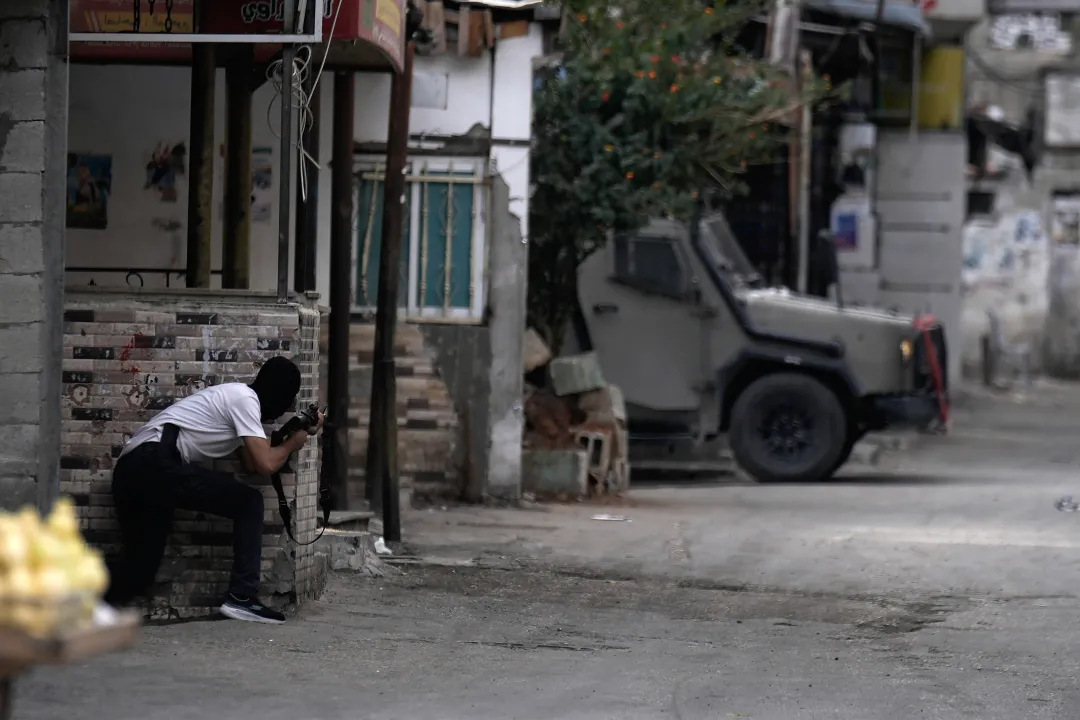By Kos Kostmayer, poet, novelist, screenplay writer
October 8, 2024
I don’t know where we are
We are not allowed to see
Lights are made to blind us
We are driven out of sleep – ridden down by beasts – banished out of sight
They say we have no right to live, but still I have to ask: whose prayers abide when we are vaporized?
Who cares for us when laws are cast aside by genocide?
Who walks inside the wind with us when all is stolen, all is lost, all is broken in the mind?
We were never born to disappear and yet we vanish
The West is deaf to our suffering, indifferent to our need, blind to our despair, but I have heard the cries of mothers bleeding orphans in the dark
When infanticide is no longer a sin, we have come to the edge where the end begins
We are pleading in the void
There is fear in every step
Death in every cell
I am running out of breath
I am not allowed to breathe
I don’t know what to do
I pray you hear me when I say that if you find my last remains scattered on the bloody ground
Treat them with respect
Take them home to Khan Yunis
Bury them beside my name.
###
In the last 12 months the U.S.A. has embraced, weaponized and fully funded Israel’s genocide against the people of Palestine. It has been estimated by Lancet and other reputable organizations that a minimum of 118,000 and possibly more than 200,000 Palestinians, most of them women and children, have been slaughtered to date, and the killing continues unabated. The living are hounded from place to place, then buried under bombs delivered to Israel by the U.S.A. The dead pile up. The war goes on and spreads. Israel continues bombing schools, churches, mosques, temples, refugee camps, apartment buildings, civilian dwellings, tent cities, U.N. shelters, designated safe zones, and all the while disease and famine spread and the hostages that Israel claims to care about continue to die or remain in captivity. In the past few days Israel has bombed four countries – Palestine, Lebanon, Syria, Yemen – killing mostly civilians, including countless numbers of children. Children are always civilians. Civilians are always innocent.
According to Oxfam, more women and children have been killed in Gaza than in any other conflict in the world over the past two decades. The response of the Biden administration to these ongoing massacres is a mix of unforgivable cruelty, blatant dishonesty and astonishing weakness. A group of American medical professionals who traveled to Gaza to care for the wounded recently sent a letter to President Biden and Vice President Harris, pleading for mercy, and saying, “We cannot fathom why you continue arming the country that is deliberately killing these children en masse.” It is difficult to think of the current Israeli government as a legitimate state. It has become a state of mind, a feverish whirlwind of annihilation bent on destruction and bred for death, less a governing body than a lethal and well-funded war machine. In the midst of all this we have to retain some sense of our own humanity. We have to embrace compassion. We have to reject the agents of death and destruction on every side. We have to stand with the innocent, and with the living, not with the killers. We have to be grateful for the fact that the international community has overwhelmingly condemned the U.S. sponsored Israeli violence and has articulated strong support for Palestinian self-determination. That call has been echoed by a multitude of Jewish organizations and people around the world who have condemned the genocide, demanded an immediate and permanent ceasefire, and overwhelmingly rejected the egregious and dangerous claim that Judaism and Zionism are synonymous. We have to acknowledge that the Palestinian people have a right – codified by international law – to resist subjugation. They also have a right to self-determination and self-defense, but Israel has never allowed the Palestinians to assert those rights in a reasonable, non-violent fashion. We have lost our way, we have betrayed our professed values, and we have abandoned the rules-based international order put into place after World War Two in response to genocide. It is a sad but true fact that there is no end to our shame; no redemption in our lust to kill; no sense in our cruelty; no mercy in our politics; no reason in the madness we have subsidized. We have spread death, destruction, disease and even famine without regard for human life or safety. We have forsaken the righteous cause and made ourselves the willing servitors of evil. We have sided with the mighty against the undefended. We have become the agents of an infinite sorrow.

